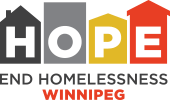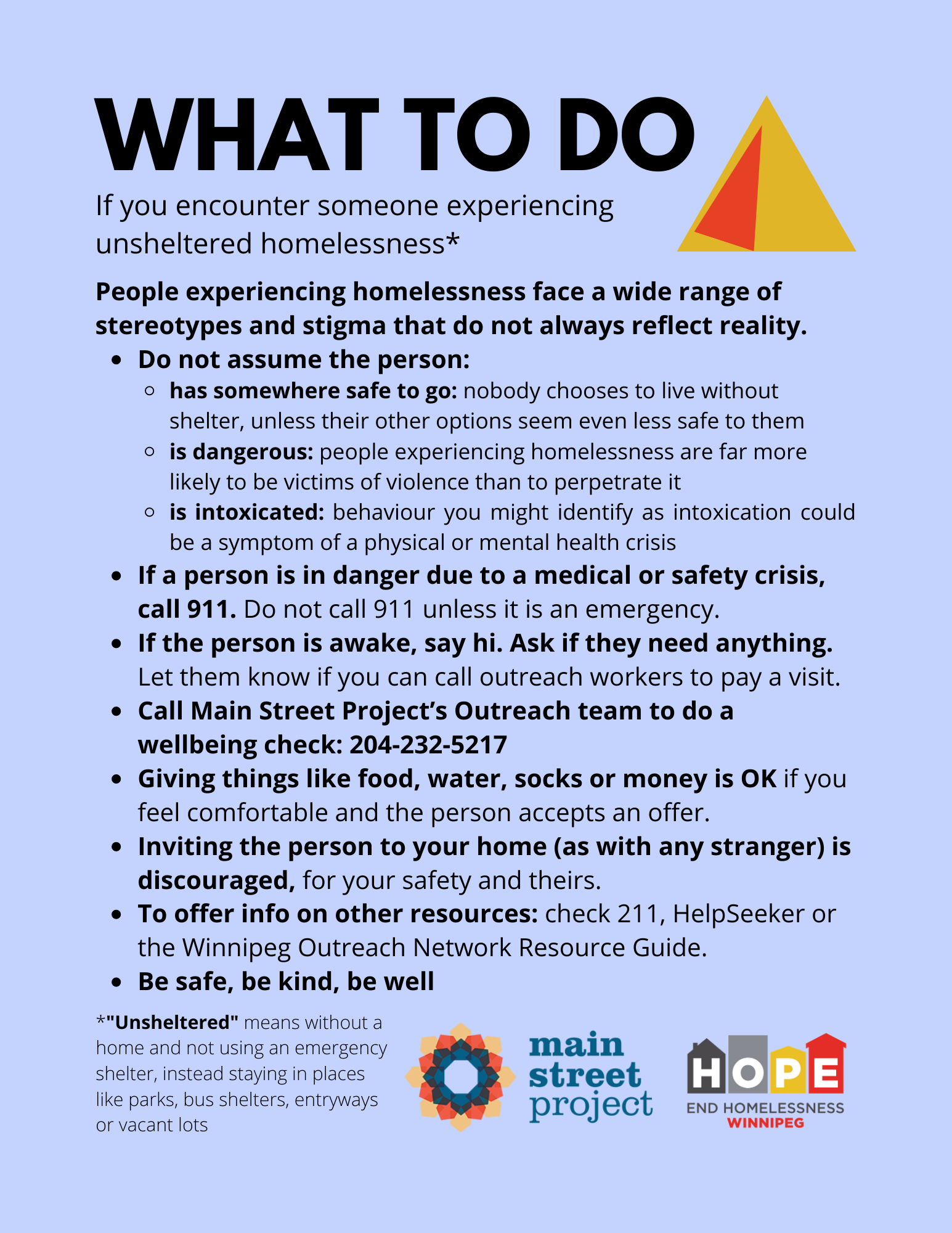End Homelessness Winnipeg was created in 2015 to lead implementation of our city’s 10-year Plan to End Homelessness. Since that time, other Canadian cities have taken significant steps toward preventing and reducing homelessness. Some communities, such as Medicine Hat, have ended homelessness entirely.
It has become clear what needs to happen for Winnipeg to realize similar success.
Two areas pose the most significant challenges for ending homelessness here: first, there is a lack of appropriate housing supply to meet the needs of those experiencing or at risk of homelessness; and second, there is a lack of co-ordination among different levels of government to create the housing needed.
Kíkininaw Óma, the Strategy to Support Unsheltered Winnipeggers, was released last June, calling for the creation of housing as the top priority for addressing unsheltered homelessness and encampments. Since that time, the Winnipeg Comprehensive Housing Needs Assessment, CMHC’s 2020 Rental Market Report and a Parliamentary Budget Office Report on Urban, Rural and Northern Indigenous Housing all point to the same critical gaps in Winnipeg’s housing continuum: shortages of low-income housing units for singles, larger families, Indigenous people and people requiring supportive housing.
End Homelessness Winnipeg has conservatively estimated that at least 1,340 new units are required by 2025 to address these gaps. According to the Parliamentary Budget Office, over the past three years combined, only 143 affordable units have been created across Manitoba. Last week, the province announced another 50 units will be made available.
This leaves more than 250 new units needed each year, for the next four years. All levels of government have roles to play, and must work together to achieve this target.
The Our Winnipeg 2045 Development Plan commits to “End Homelessness”; however, the city’s outdated zoning and development regime presents obstacles to creating the types of housing needed to achieve this. The city has numerous tools at its disposal to fast-track the types of housing Winnipeg is missing, by reducing red tape and costs for developers of urgently needed housing. Expediting approvals and waiving fees for permits, zoning and development of low-income housing initiatives are just a few of these options.
The province’s three-year action plan prioritizes housing and supports for “Manitobans experiencing homelessness, people with mental or physical disabilities, persons with addictions, youth aging out of care, and women fleeing violence.” To address this priority, the province will need to house more than 1,500 Winnipeggers experiencing homelessness, a large majority of whom belong to one or more other prioritized groups.
While the Canada-Manitoba Housing Benefit will assist up to 370 people to access a broader range of housing, and a recent announcement commits to housing supports for another 250 individuals, success of these measures is threatened by inadequate housing supply. Kíkininaw Óma calls for the province to invest in 670 new units of supportive and low-income housing to address its own priorities as a housing funder.
The federal government also needs to invest in capital and operating costs of low-income housing, and in Indigenous-led housing models and initiatives specifically. To meet its goals of advancing reconciliation with Indigenous peoples and ending chronic homelessness, the federal government must lead collaborative engagement with other levels of government and Indigenous leaders.
Bold investments are required for Reaching Home, Canada’s Homelessness Strategy; the Rapid Housing Initiative; and an Urban, Rural and Northern Indigenous Housing Strategy. This last measure is particularly important, given that Winnipeg has 9,000 Indigenous households in core housing need — the largest of any Canadian metropolitan area.
Beyond these actions specific to levels of government, co-ordinated effort from philanthropy, the private sector and Indigenous leadership is needed to end homelessness in Winnipeg. Social innovation is required to develop low-cost, sustainable housing alternatives. Promising Indigenous-led models such as The Village project will have to be scaled to meet demand.
Community agencies must work in ever-closer collaboration to provide the person-centred, culturally appropriate supports some people need to thrive in housing. Systemic racism within public and charitable services must be addressed by building capacity for Indigenous-led, culturally informed solutions.
Government systems that currently inflow people to homelessness — Corrections, Child and Family Services, Health and Community Living Disability Services among them — require changes to policies and procedures that prevent or delay access to identification, employment and income assistance, housing and other services for individuals exiting their care.
This is an ambitious set of tasks on a tight timeline. However, it is not vague, overly complex, or unachievable. Working together, we can end homelessness in Winnipeg.
-This opinion editorial was authored by Lucille Bruce, former CEO of End Homelessness Winnipeg, and published in the Winnipeg Free Press.


